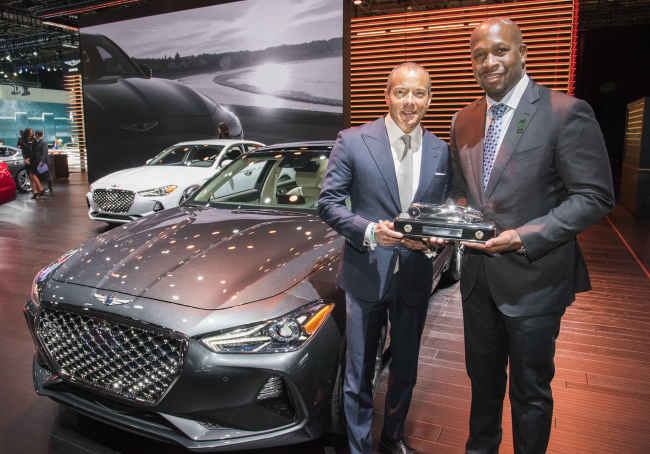South Korean auto giant Hyundai Motor is planning to launch its luxury brand Genesis in China, seeking a change in its sales strategy that has only targeted the mass market for years.
Hyundai Motor is in preparation for the official launch of the brand, said officials in Seoul, and is looking for places to start the business in Shanghai.
The carmaker is reviewing launches in the regional basis of the world’s largest auto market along with Shanghai to compete with other luxury automakers that have entered the market as early as over a decade ago.
The plan is to first build dealership networks for Genesis and promote brand awareness before showcasing the brand’s lineups.
Launched as a separate brand in Korea four years ago, Genesis has entered markets in US, Canada, Russia and the Middle East so far.
Before launching Genesis as a luxury car brand, Hyundai had sold the EQ900 and Genesis DH, predecessor of the G80, in China, but failed to enter the mainstream due to poor sales. The exact number of cars sold has not been released.
 |
(Hyundai Motor) |
The plan for the Genesis to enter China appears to have been delayed due to diplomatic bickering between Seoul and Beijing two years ago, in which the carmaker suffered a fatal drop in sales, but it resumes amid the brand winning global recognition.
The Genesis G70, the smallest sedan of its lineup, won top US auto awards at Detroit Motor Show this month. The carmaker plans to expand its lineup with a plan to unveil its first SUV, codenamed GV80, later this year.
Along with the Genesis export, the carmaker could consider building a manufacturing unit there, as it has to pay 15 percent in tariffs. It would make it difficult to take advantage in price when competing with other luxury carmakers such as Mercedes-Benz and BMW that already have manufacturing units there.
Genesis’ entry to China, however, still faces hurdles. Building a plant in a foreign country requires consent from unionized workers in South Korea. The profitability of launching Genesis is another question, according to market observers, citing marketing costs and hefty investment for building manufacturing units.
By Cho Chung-un (
christory@heraldcorp.com)







![[Today’s K-pop] Blackpink’s Jennie, Lisa invited to Coachella as solo acts](http://res.heraldm.com/phpwas/restmb_idxmake.php?idx=644&simg=/content/image/2024/11/21/20241121050099_0.jpg)
